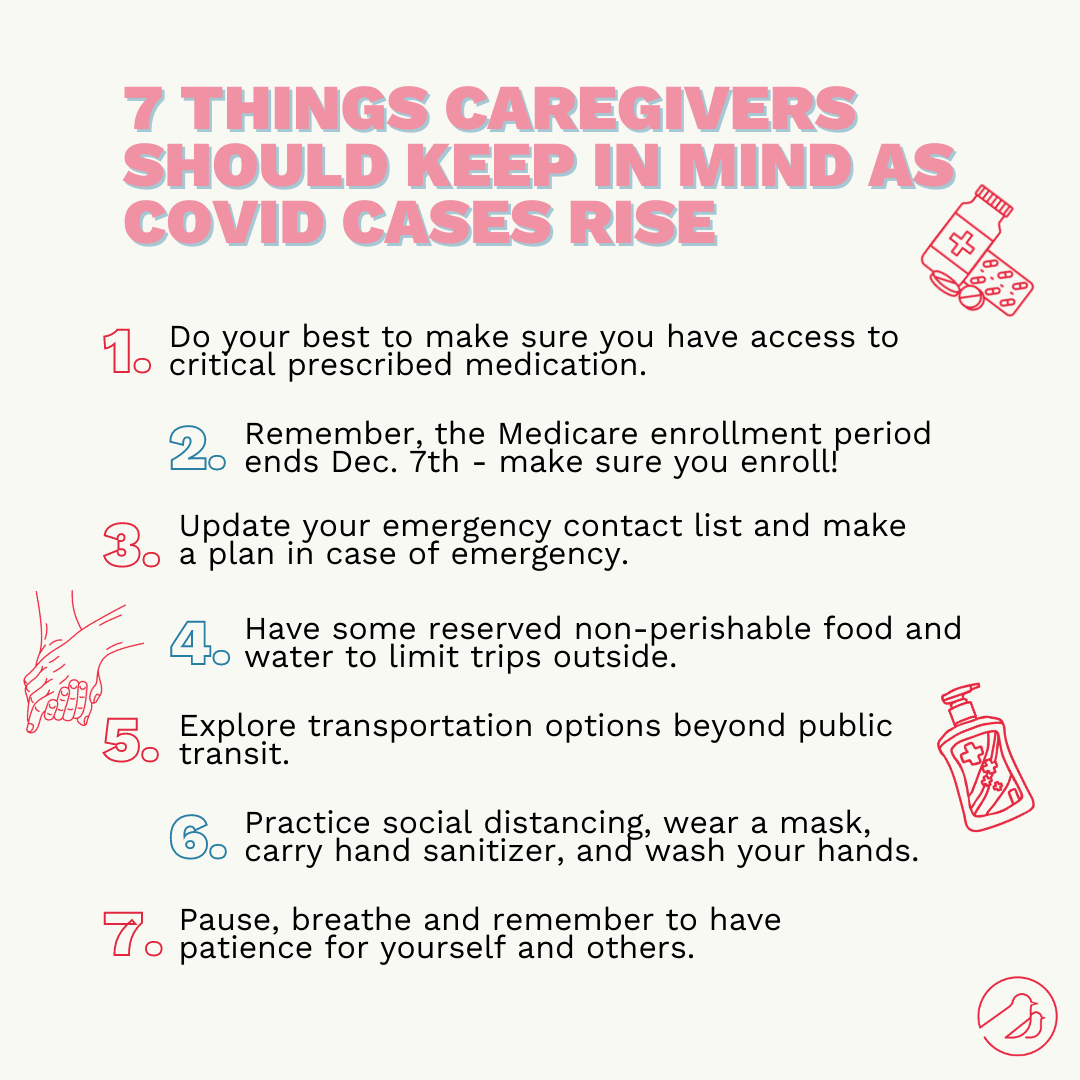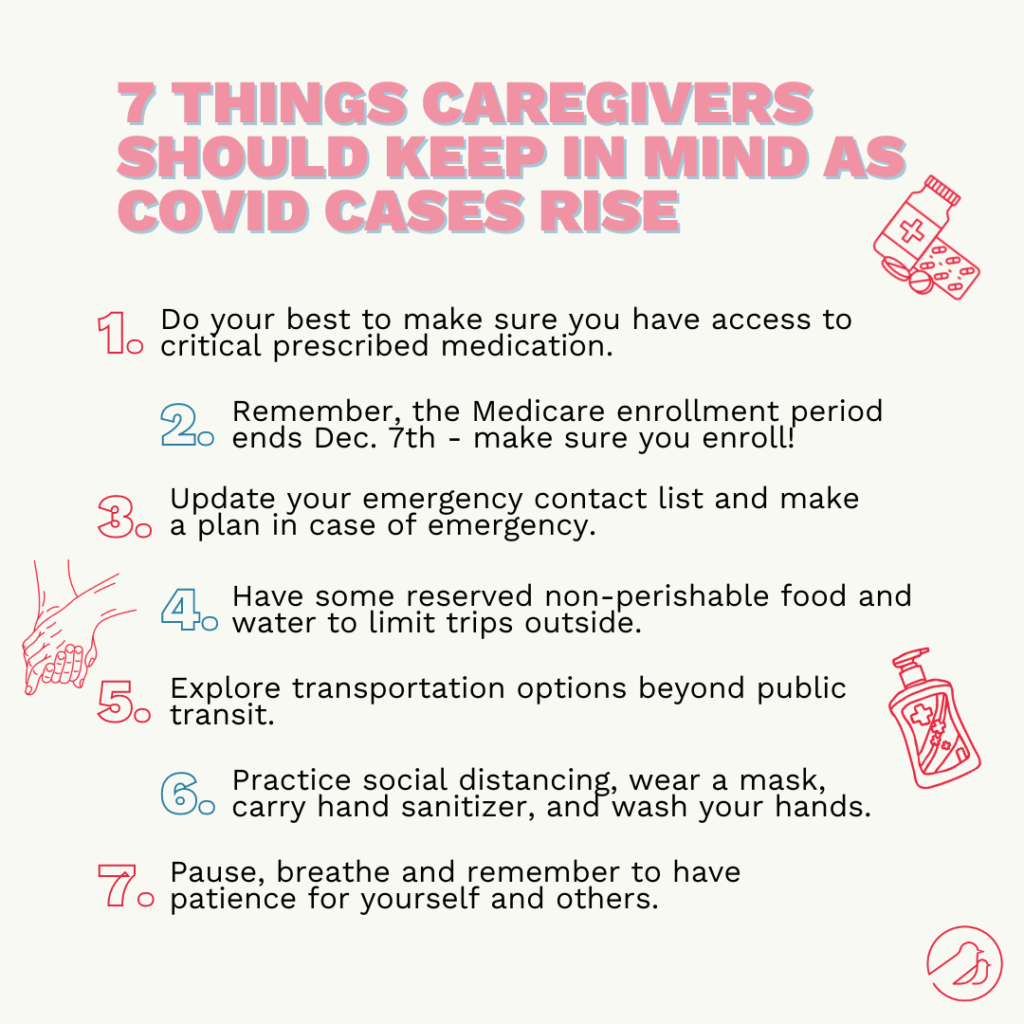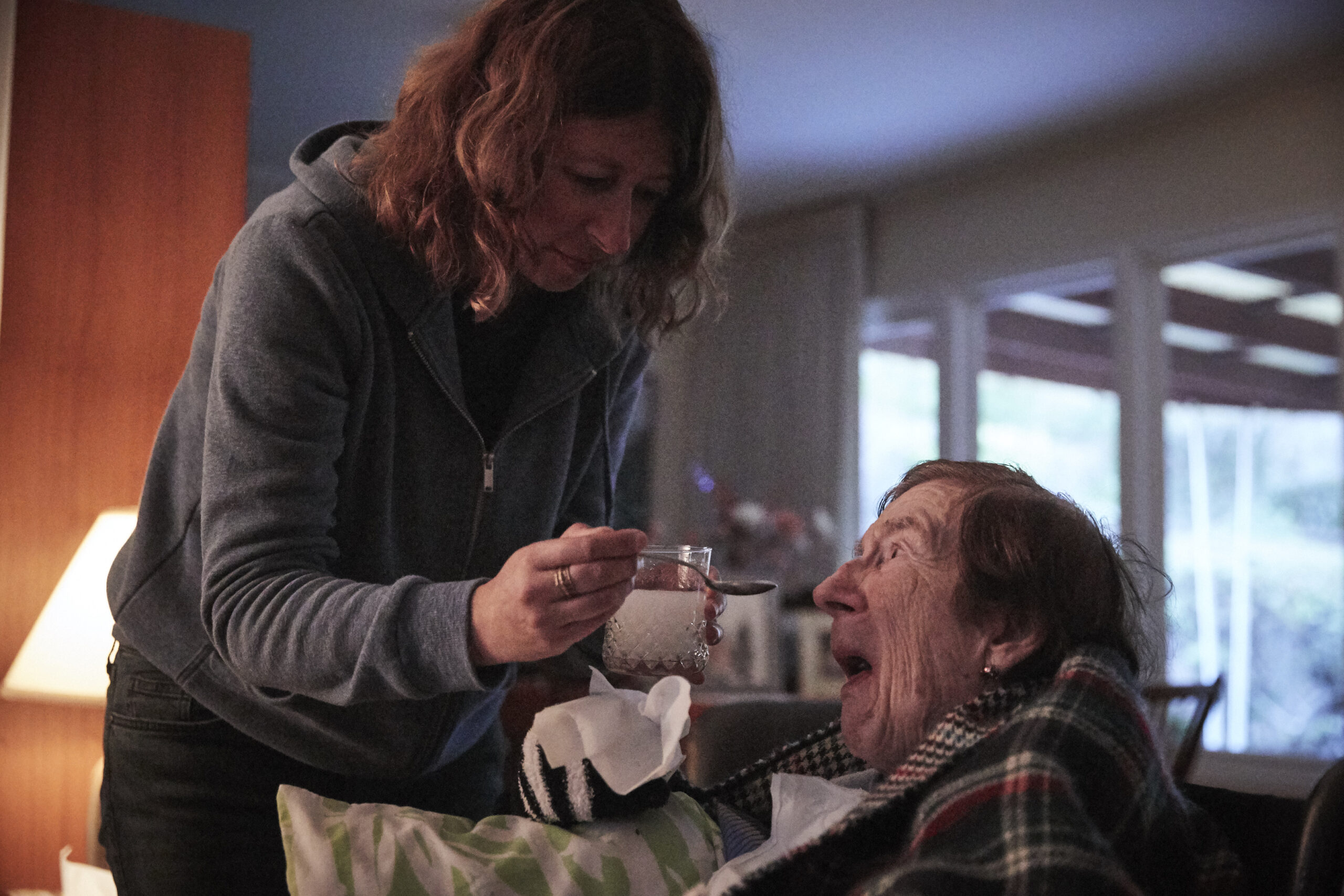
Update, October 27, 2020
The pandemic has continued to disrupt our lives, with no clear end in sight. In fact, we are seeing a rapid and deeply concerning uptick in cases, hitting a record number of new cases on October 23. With COVID cases rising and the looming election, it’s important for us to review and update our care plans! We need to continue to show our care for our community, and find ways to support each other even in the hardest times.
Here are ten new tips for caregivers as we head into this new wave and difficult winter:
- Do your best to make sure you have access to critical prescribed medication. The CDC has a helpful guide explaining how you can stockpile your medication for an emergency.
- Remember Medicare enrollment period ends December 7th — make sure you enroll if you’re eligible!
- ACA enrollment begins November 1st and is open through December 15th, don’t forget to sign up for health insurance!
- Update your emergency contact/pod list and make a plan in case of emergency. Know who you will call first in an emergency and map out a phone tree for notifications. Save the phone numbers and addresses of your care squad in a safe place you won’t forget. Revisit the pod agreements you made earlier in the pandemic, or create some if you haven’t yet.
- It’s going to be tempting to gather indoors as the weather gets colder, so look for ways to keep connected. If you had Zoom fatigue early in the pandemic, try scheduling regular phone calls. When indoors with others you don’t live with, always wear a mask and maintain distance.
- Identify some local and state-based organizations that are providing COVID tests, food and financial aid, and other services.
- Have some reserved non-perishable food and water to limit trips outside.
- Explore transportation options beyond public transit — for example, carpooling with your pandemic pod, ridesharing with a mask and hand sanitizer, walking or biking if you are able, etc.
- Practice social distancing, wear a mask, carry hand sanitizer, and wash your hands.
- Pause, breathe and remember to have patience for yourself and others. We know this period is going to be very hard. We are a community, and we can protect each other.
Share these tips with your community. Click the graphic below to share on Facebook:
COVID-19 has disrupted the way we give, provide, and receive care, and left many of us stressed and strained. Though three main relief packages have passed Congress, the #CaringMajority has largely been left out, with aid for caregivers, comprehensive paid leave, and increased access to supports and services for child care, older adults, and people with disabilities sorely lacking.
While we continue to demand policy solutions to address our needs, in a true show of community care, our partners are pulling together tips for those most at-risk, and compile resources to those most affected by COVID-19. Together, we continue to demonstrate that care is a collective issue, and we all have a role to play in supporting and uplifting one another during this difficult time.
Please check out this living list below, and if you have something to add, please email us.
Trainings:
COVID-Ready Caregiver Certification. Use promo code CAGCOVID to register for FREE for this online training and certification.
Tips:
For sandwich generation caregivers from Caring Across
For home care workers from National Domestic Workers Alliance
How to support family caregivers from the Rosalynn Carter Foundation
How to create caring workplaces from Caring Across
How to keep your kids engaged at home from Easterseals
How long-term care providers can navigate COVID-19 from PHI
Coronavirus and older people: 6 tips for families from the World Economic Forum
How to coronavirus-proof your home from CNN
How to keep older people safe from the New York Times
How to Explain Coronavirus to Kids from USA Today
COVID-19 Resources for Undocumented Immigrants from Undocuscholars
Know Your Rights Guide to Surviving COVID-19 Triage Protocols from #NoBodyIsDisposable
Information:
People Who Are at Higher Risk for Severe Illness from the CDC
Coronavirus disease (COVID-19) Pandemic Updates from the WHO
Virtual Community Spaces:
Caregiver Corner on Facebook Live: Three times a week, Caring Across staff are hosting live conversations with expert guests about policy, caregiver concerns, and organizing.
Care Together: Start a chat by text, Facebook Messenger, or live webchat and you’ll be connected to a live Caregiver Coach who can provide advice, resources, and emotional support.
Supports and Services:
Invisible Hands: Food delivery for at-risk populations during COVID-19, serving NYC and parts of New Jersey, with more locations coming soon
ALIA: Benefits platform for domestic workers to receive paid time off and insurance. UPDATE: As of March 9, 2022, NDWA discontinued the ALIA program.
Lyft: In partnership with the National Council on Aging, Lyft is piloting a program to provide free rides to homebound seniors and their caregivers. Expansion is planned in the coming weeks.
Our Partner Organizations’ Resource Centers:
For people with disabilities, seniors, families and their caregivers:
The Arc
Access Living
ANCOR
Justice in Aging
National Consumer Voice for Quality Long-term Care
For workers/providers:
Eldercare Workforce Alliance
National Domestic Workers Alliance
Resources courtesy of: Access Living, ANCOR, The Arc, The Center for Consumer Engagement in Health Innovation, Diverse Elders Coalition, Eldercare Workforce Alliance, Justice in Aging, National Association of Councils on Developmental Disabilities, National Consumer Voice for Quality Long-term Care, National Domestic Workers Alliance, PHI, Public Justice Center, Rosalynn Carter Institute




